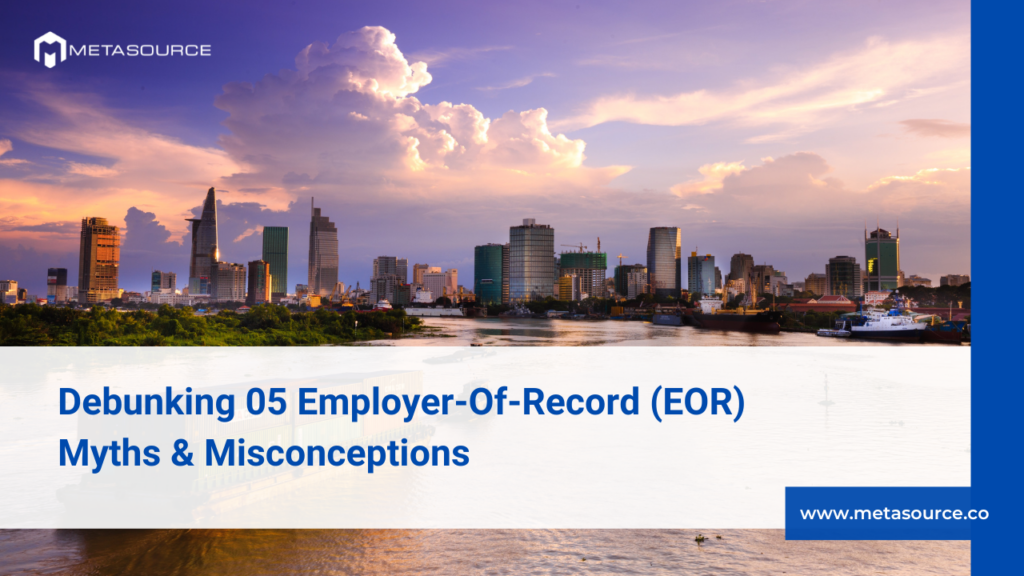Corporate taxes are a critical consideration for any business in Vietnam. Tax and tax compliance will be a major consideration for new companies and startups, or anyone considering entering the Vietnamese market. Read on for our introductory guide to Vietnamese taxation for businesses.
Key Types of Tax
There are several types of tax payable by companies in Vietnam. Corporate income taxes and labour taxes are generally the most material to a company, but a company owner/manager should also consider the impact of value added tax, foreign contractor tax, dividend tax and business license tax, amongst others.
* We’ve provided a headline rate for each type of tax, but its essential that you read the fine print and speak to a specialist for any specific case! We’ve focused on most relevant corporate taxes and tax rates for smaller service-based companies; other taxes of note may include those on imports and exports, or those related to loans, capital gains or royalties.
1) Corporate Income Tax (10-20%*)
Company income tax (CIT) is a major consideration for businesses in Vietnam. CIT is paid on an annual basis. From 2014, the CIT rate was reduced from 25% down to it’s current official rate of 20% of company profits.
There is currently discussion on reducing this tax further for business that are ‘small to medium’ or ‘micro’. This may see the tax rate reduced to:
- 17% for companies with revenue between 3b – 50b VND p.a.(approximately 125k USD – 2.1m USD) and employing less than 200 staff; or
- 15% for companies with revenue less than 3b VND p.a. (approximately 125k USD).
Furthermore, incentive tax rates are applicable in some situations; for example, in special economic zones, hi-tech parks or defined areas with socio-economic difficulties. Companies that are focused on high technology or the manufacture of software products may also be eligible for an incentive tax rate of 10% over 15 years.
Certain deductions are allowable to the company’s revenue for the purpose of calculating the taxable profits. Deductions must be verifiable and relate to the generation of revenue by the company. Your company can not deduct items like administrative penalties, unrealised foreign exchange losses, interest on certain loans and some aspects of employee remuneration and staff welfare. Losses by a company in Vietnam can be carried forward for up to 5 years.
2) Labor Taxes, including Social Security (23.5% noting caps)
Companies who employ staff are liable for labour taxes and several forms of social security (including social insurance, unemployment insurance and health insurance). Each month, an employer has to pay taxes as related to their employees. Social insurances are 17.5% of their gross monthly salary. A further 3% is charged for health insurance, 1% for unemployment insurance and 2% for trade unions, noting some caps on contributions.
Note that the employees of a company are also obligated to pay personal income taxes and make a contribution to social insurance. These are separate and additional to the labor taxes paid by the employer (mentioned above). Importantly, there can be an expectation by employees that a company will also bear the cost of the employee’s personal obligations. Employees will often negotiate on the basis of a net monthly salary to achieve this. While this attitude is changing, beware of this expectation during any salary negotiations.
3) Value Added Tax (10%*)
Value Added Tax (VAT) is generally 10% on most transactions and can be debited and credited. Each company’s VAT accounting method will be defined during the company registration process, and as a result, any outstanding VAT balance will be paid on a monthly or quarterly basis.
Exported goods and services are subject to a VAT tax rate of 0%. A limited number of items are subject to a VAT tax rate of 10%.
4) Foreign Contractor Tax (10%*)
Any company registered in Vietnam, that is purchasing services from a foreign contractor needs to consider Foreign Contractor Tax (FCT). Common examples of this might include the purchase of advertising on Google or Facebook, or payment of web hosting fees to a service provider registered overseas.
The specific FCT tax rate for a transaction depends on the service and the method of calculation. FCT ensures that an amount is withheld by the Vietnamese tax authorities for a) corporate income tax and b) VAT applicable to the foreign contractor. The amount of FCT paid in relation to VAT is then deductible from the company’s balance of VAT.
The company will pay FCT directly to the government on behalf of the foreign contractor. Foreign contractor tax must be paid before an expense can be deducted from the company’s revenue for the purpose of calculating CIT.
5) Dividend Tax (0% / 5%*)
The company pay the dividends on an annual basis after completing all their financial obligations. This includes the payment of taxes, making reserves for possible future losses and ensuring the company has the capacity to meet all current payables.
Dividends paid to corporate shareholders are not subject to dividend tax. However, dividends paid in cash to foreign individual investors are subject to a 5% withholding tax; the company pays it when it transfers the dividend. Vietnamese law treat differently payment by share or bond.
6) Business License Tax (minor)
Business license tax is an annual administrative charge based on the declared capital of the company. For a typical small-capital company like those formed for consulting or software development, the business license tax is 2m VND per year (approximately $85 USD).
The Administration of Tax in Vietnam
The National Assembly (Quốc Hội) pass any law relevant to taxation in Vietnam.
Important tax laws include the following:
- Tax Administration Law;
- Corporate Income Tax Law;
- Personal Income Tax Law;
- Value-Added Tax Law;
- Social and Health Insurance Laws;
In Vietnam, the Ministry of Finance (Bộ Tài Chính) and the Department of Taxation (Tổng Cục Thuế) administer taxation. Note that the registered address of the company will determine the district-level office of the tax department (Chi Cục Thuế); this is the place where to pay taxes and handling queries.
In addition, the Department of Social Insurance will determine the social insurance that is due and any amounts applicable for a claim for social benefits.
Tax law is changing rapidly in Vietnam. Almost all laws are subject to subsequent updates and guidance notes.
Common Tax Compliance Issues
Timely payments, regular reports and adherence to the relevant laws and standards of Vietnam are key to tax compliance. Specifically, there are several important considerations:
- Submitting annual financial reports and completing CIT payments;
- Submitting quarterly VAT reports (or monthly, as appropriate) and completing VAT payments;
- Registering employee details correctly; also, make sure to pay all obligations for labour taxes;
- Following the relevant tax and accounting standards to ensure revenue is correctly recognised, staff remuneration is accurately reported, deductions for expenditure are eligible and audits are accurate.
The Future of Tax in Vietnam
Tax is a strategic issue for Vietnam as the country faces a growing cost of health, education and infrastructure. Tax compliance is important to the country and will almost certainly receive increasing attention in future years. There are penalties for non-compliance and avoidance.














